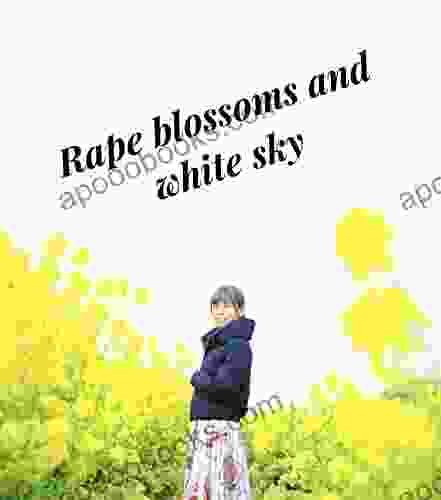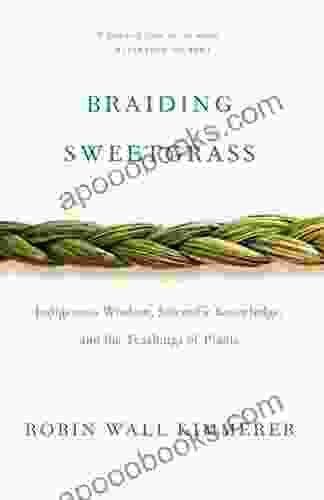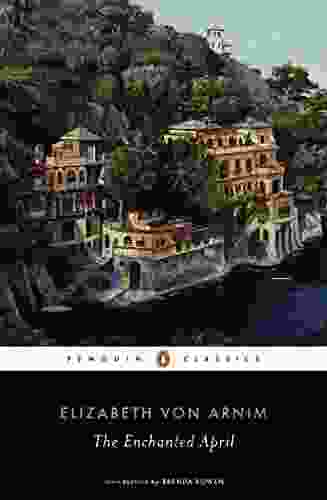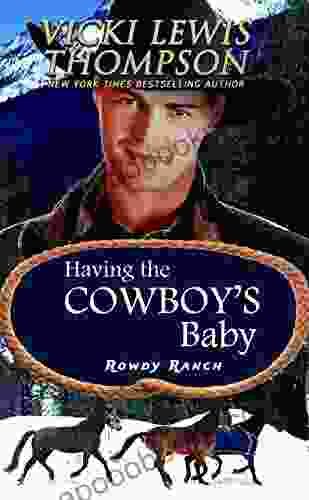Unveiling Nature's Secrets: Indigenous Wisdom, Scientific Knowledge, and the Teachings of Plants

An Exploration of the Deep Interconnection between Humans and the Plant World
Throughout human history, indigenous peoples have held a profound connection to the natural world, particularly the plant kingdom. Their intimate understanding of plant life, passed down through generations, has been pivotal in the development of traditional healing practices, ecological knowledge, and sustainable living strategies. In recent times, the convergence of indigenous wisdom and scientific research has shed new light on the healing power and ecological significance of plants, offering a wealth of insights for modern society.
4.8 out of 5
| Language | : | English |
| File size | : | 834 KB |
| Text-to-Speech | : | Enabled |
| Screen Reader | : | Supported |
| Enhanced typesetting | : | Enabled |
| X-Ray | : | Enabled |
| Word Wise | : | Enabled |
| Print length | : | 410 pages |
Indigenous Wisdom: The Guardians of Plant Knowledge
Indigenous communities have a deep respect for the plant world and view plants as sentient beings with inherent wisdom. They have developed intricate knowledge systems for identifying, harvesting, and using plants for various purposes, including healing, food, shelter, and spiritual practices. Indigenous knowledge often includes an understanding of plant chemistry, plant-animal interactions, and the ecological roles of different species.
For instance, in the Our Book Library rainforest, indigenous healers have extensive knowledge of medicinal plants and their therapeutic applications. They use plants to treat a wide range of ailments, from common infections to chronic diseases. Their practices are based on centuries of observation, experimentation, and cultural transmission.
Scientific Knowledge: Validating Indigenous Wisdom
Modern scientific research has validated many aspects of indigenous plant knowledge. Phytochemical studies have isolated and identified the active compounds in medicinal plants, confirming their healing properties. Ethnobotanical research has documented the traditional uses of plants and their potential therapeutic benefits.
For example, scientific studies have shown that the bark of the willow tree contains salicylic acid, the active ingredient in aspirin. Indigenous peoples have used willow bark for centuries to relieve pain and inflammation. Similarly, the medicinal herb echinacea has been shown to have antiviral and immunostimulatory properties, supporting traditional uses for treating colds and flu.
The Convergence of Knowledge: Unveiling Nature's Pharmacy
The convergence of indigenous wisdom and scientific knowledge has created a rich tapestry of understanding about the plant world. This convergence has led to the development of new medicines, natural remedies, and sustainable practices.
1. Drug Discovery: Indigenous knowledge has guided researchers to discover new plant-based drugs. For instance, the anti-cancer drug paclitaxel was initially derived from the bark of the Pacific yew tree, a species traditionally used by Native American healers.
2. Natural Remedies: Many modern herbal remedies are based on traditional plant knowledge. For example, chamomile tea, derived from the daisy-like herb chamomile, is widely used for its calming and anti-inflammatory effects.
3. Sustainable Agriculture: Indigenous wisdom provides valuable insights for sustainable farming practices. Traditional agroforestry systems, such as the "three sisters" method used by Native American farmers, promote biodiversity, soil health, and natural pest control.
The Teachings of Plants: A Call for Reverence and Stewardship
Beyond their healing and practical uses, plants also play a profound role in indigenous spiritual traditions. Indigenous peoples view plants as teachers and companions, offering wisdom and guidance. They believe that plants have a spirit and should be treated with respect and reciprocity.
This reverence for the plant world translates into a deep sense of environmental stewardship. Indigenous communities often have strict rules and taboos governing the harvesting and use of plants, ensuring their sustainable use and conservation.
: Embracing the Wisdom and Power of Plants
The convergence of indigenous wisdom and scientific knowledge is a testament to the enduring power and relevance of traditional knowledge. It offers a holistic understanding of the plant world and its potential to heal, sustain, and inspire.
By embracing the wisdom of indigenous peoples and integrating it with modern scientific knowledge, we can unlock the full potential of plants for human health and well-being. We can also foster a deeper connection with the natural world and promote sustainable practices that safeguard the integrity of our planet for generations to come.
4.8 out of 5
| Language | : | English |
| File size | : | 834 KB |
| Text-to-Speech | : | Enabled |
| Screen Reader | : | Supported |
| Enhanced typesetting | : | Enabled |
| X-Ray | : | Enabled |
| Word Wise | : | Enabled |
| Print length | : | 410 pages |
Do you want to contribute by writing guest posts on this blog?
Please contact us and send us a resume of previous articles that you have written.
 Book
Book Novel
Novel Page
Page Chapter
Chapter Text
Text Story
Story Genre
Genre Reader
Reader Library
Library Paperback
Paperback E-book
E-book Magazine
Magazine Newspaper
Newspaper Paragraph
Paragraph Sentence
Sentence Bookmark
Bookmark Shelf
Shelf Glossary
Glossary Bibliography
Bibliography Foreword
Foreword Preface
Preface Synopsis
Synopsis Annotation
Annotation Footnote
Footnote Manuscript
Manuscript Scroll
Scroll Codex
Codex Tome
Tome Bestseller
Bestseller Classics
Classics Library card
Library card Narrative
Narrative Biography
Biography Autobiography
Autobiography Memoir
Memoir Reference
Reference Encyclopedia
Encyclopedia Ella Cooper
Ella Cooper Rug Hooking Magazine
Rug Hooking Magazine Sharon Waters
Sharon Waters Rod Decker
Rod Decker Inglath Cooper
Inglath Cooper Lucille Brown
Lucille Brown Stephen Harding
Stephen Harding Shauna Niequist
Shauna Niequist William W Johnstone
William W Johnstone Vicki Lewis Thompson
Vicki Lewis Thompson Victor J Banis
Victor J Banis Tridip Suhrud
Tridip Suhrud Fiona Lucas
Fiona Lucas Tionna Tee Smalls
Tionna Tee Smalls Utamu Pease
Utamu Pease Tom Bowman
Tom Bowman Vanessa Kind
Vanessa Kind Kristan Higgins
Kristan Higgins S Massery
S Massery Stephen Wolinsky
Stephen Wolinsky
Light bulbAdvertise smarter! Our strategic ad space ensures maximum exposure. Reserve your spot today!
 Rod WardFollow ·19.4k
Rod WardFollow ·19.4k Jerome PowellFollow ·12.4k
Jerome PowellFollow ·12.4k Alec HayesFollow ·14.1k
Alec HayesFollow ·14.1k Manuel ButlerFollow ·15.7k
Manuel ButlerFollow ·15.7k Isaac BellFollow ·6.4k
Isaac BellFollow ·6.4k Jacob FosterFollow ·16.9k
Jacob FosterFollow ·16.9k Thomas PynchonFollow ·11.4k
Thomas PynchonFollow ·11.4k Pete BlairFollow ·14.1k
Pete BlairFollow ·14.1k

 Harry Cook
Harry CookRape Blossoms and White Sky: A Floral Symphony of...
A Kaleidoscope of Colors...

 Vic Parker
Vic ParkerThe Passion of Jovita Fuentes: Unveiling the...
Immerse yourself in the...

 Cormac McCarthy
Cormac McCarthySinners and Saints: A Dark New Adult High School Bully...
Sinners and Saints is...
4.8 out of 5
| Language | : | English |
| File size | : | 834 KB |
| Text-to-Speech | : | Enabled |
| Screen Reader | : | Supported |
| Enhanced typesetting | : | Enabled |
| X-Ray | : | Enabled |
| Word Wise | : | Enabled |
| Print length | : | 410 pages |

















